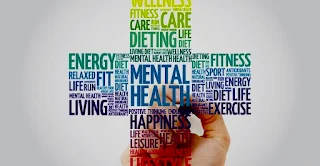Mental Health Matters: Understanding, Healing, and Helping One Another
Dear Readers,
I hope you’re all doing well and finding peace in your everyday lives, even amidst the noise of modern living. I want to begin by sharing something personal: Recently, my church pastor kindly recommended that I attend a mental health training seminar. I wasn’t sure what to expect—but I’m so grateful I attended. The session opened my eyes to the deep emotional battles people fight silently, and the importance of educating ourselves with compassion, not just curiosity.
Mental health is no longer a topic we can afford to whisper about. It’s time we speak with wisdom, listen without judgment, and extend kindness like lifelines.
What Is Mental Health, Really?
Mental health is about how we think, feel, and behave. It’s not just the absence of a disorder—it’s the presence of peace, balance, self-awareness, and emotional resilience.
Tip: Just like we monitor our physical health, we must check in on our mental well-being. Ask yourself regularly: How am I really doing today—emotionally and mentally?
Mental Illness Isn’t a Character Flaw
Let’s dismantle a dangerous myth: mental illness is not a sign of weakness. It’s a legitimate medical condition, just like diabetes or heart disease. It affects people from all walks of life—doctors, artists, students, parents, even pastors.
Example: I learned during my own research that even notable historical figures like Abraham Lincoln, Winston Churchill, and Princess Diana battled depression. Today, celebrities like Dwayne “The Rock” Johnson, Adele, and Ryan Reynolds openly discuss anxiety and therapy. The message? You can be brave, brilliant—and still need help.
Common Mental Health Challenges
Anxiety Disorders – Excessive worry, restlessness, and fear.
Depression – Persistent sadness, loss of interest, fatigue.
Bipolar Disorder – Dramatic mood swings, from highs to lows.
PTSD – Flashbacks and distress from past trauma.
OCD – Repetitive thoughts and compulsions.
Fact: According to the World Health Organization, 1 in 4 people will be affected by mental or neurological disorders at some point in their lives.
What Can We Do to Support Mental Health?
Here are some helpful and wise strategies I noted down during the seminar:
1. Listen Without Fixing
Sometimes, people don’t need advice. They just need someone to sit with them, nod, and say, “That sounds really hard. I’m here.”
2.Encourage Professional Help
Therapists and counselors are trained to guide people through mental fog. Normalize therapy the way we normalize going to the dentist.
3.Check On Your Strong Friends
They may look okay on the outside but be falling apart within. A simple, “Thinking of you today—how are you really?” can go a long way.
4.Set Mental Health Boundaries
Don’t burn yourself out trying to carry everyone’s emotional baggage. You matter too.
Self-Care Isn’t Selfish—It’s Survival
We must be intentional about rest, joy, and silence.
Practical Advice:
Take nature walks (trees are natural therapists).
Unplug from your phone for 30 minutes a day.
Write in a journal without editing yourself.
Join a support group—church communities are powerful anchors.
“The mind, like a garden, must be tended gently. Starve it of joy, and even the most vibrant soul wilts. Feed it with truth, rest, and grace—it will bloom again.”
- Ruby Dalvina
The Church and Mental Health
Faith and mental health can walk hand in hand. At the seminar, I was moved by how many faith leaders spoke openly about their own struggles and how the church can become a healing space—not just a preaching one.
Idea: Host a mental health awareness Sunday at your local church or youth group. Invite speakers. Start the conversation.
Breaking the Stigma Starts With Us
We can’t keep saying “pray it away” when someone is in deep emotional pain. Prayer is powerful—but so is therapy, medication when needed, and practical support.
Let’s change how we speak:
Instead of “He’s crazy,” say “He seems to be going through something.”
Instead of “She’s being dramatic,” try “Maybe she’s overwhelmed.”
Fact: Stigmatizing language increases shame, delays treatment, and worsens mental health outcomes.
Final Thoughts from My Heart
The mental health training I attended didn’t just teach me—it changed me. It softened how I see others, made me reflect on my own silent struggles, and reminded me that behind every smile might be an untold story.
Let’s be kinder. Gentler. Let’s raise awareness, not eyebrows.
And if you’re reading this and struggling right now—please know this:
You are not alone.
You are not broken.
You are not invisible.
You are deeply loved, and your healing journey matters.
With empathy, light, and solidarity,
Ruby Dalvina
Explore a full list of resources here:




Comments